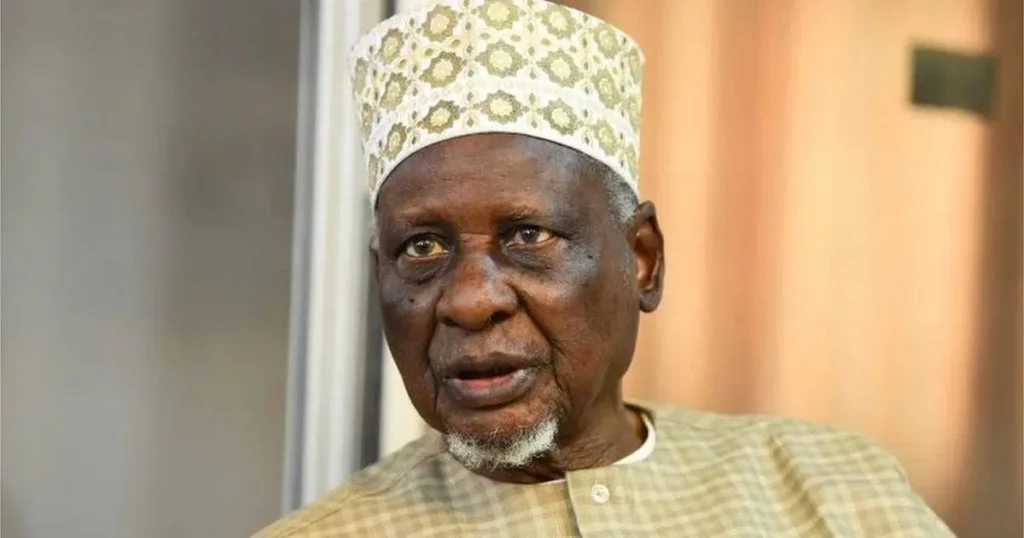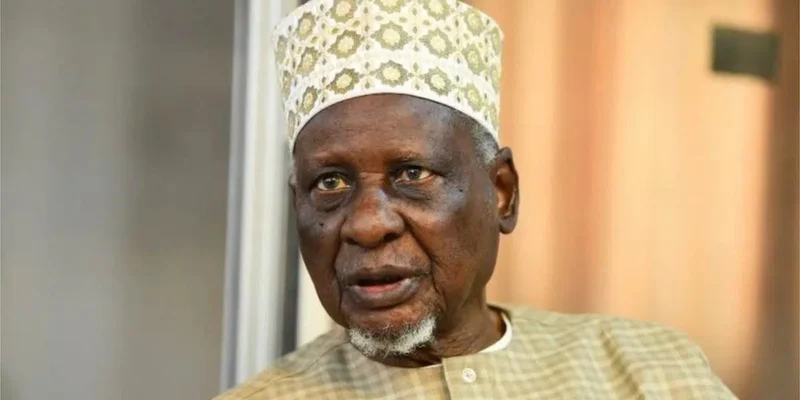
As the opposition coalition, led by former Vice President Atiku Abubakar, gains momentum in the North, a critical conversation is unfolding about the influence of the Northern region on Nigeria’s upcoming 2027 presidential election. Veteran politician Alhaji Tanko Yakassai has stepped into the debate, declaring that while the North plays an important role in shaping the future of the nation, it cannot single-handedly decide who becomes the next president. Instead, he argues that unity between the North and South is the key to electing a leader who can bring lasting change.
Yakassai, who has held prominent political positions, including as a Liaison Officer to the late President Shehu Shagari and as a founding member of the Arewa Consultative Forum (ACF), spoke out against growing claims that the North’s votes will be the decisive factor in the 2027 race. “The presidential election is a national affair. The North alone cannot determine who becomes President, nor can the South. A strong candidate, supported by both regions, will ultimately win the election,” he said in a recent interview with Vanguard.
Yakassai’s comments come amidst a turbulent political climate, with various groups rallying against President Bola Tinubu’s administration and calling for change. His statement seeks to remind Nigerians that the North’s power, while significant due to its large electorate, is not absolute in determining the next president. Yakassai stressed that beyond popularity, a candidate must have the financial resources to sustain a successful campaign. “In Nigeria, elections are expensive, and people with money often hesitate to sponsor candidates. A formidable candidate needs the financial backing to run independently, without relying solely on external support,” he explained.
His remarks are particularly significant as the anti-Tinubu coalition continues to gain ground, driven by figures like Atiku Abubakar and former Kaduna State Governor Nasir el-Rufai. Despite challenges and defections within their ranks, the coalition is positioning itself as a serious contender for the presidency in 2027. Atiku, who formally announced the coalition in March 2025, has been vocal about the need for a change in leadership. However, some critics, including President Tinubu’s Special Adviser on Information, Bayo Onanuga, have argued that the coalition has already begun to fracture.
Yakassai’s position aligns with those of other political leaders, including members of the League of Northern Democrats (LND), a group focused on reforming Nigeria. LND’s convener, Umar Ardo, stated that the group’s goal is not simply to unseat the current administration but to initiate a broader national transformation. “Our mission is to rescue Nigeria from its deepening decline, not to seize power for the sake of it. We want to help the country reach its full potential,” Ardo asserted.
The conversation about the 2027 presidency is further complicated by defections, particularly from the People’s Democratic Party (PDP) to the ruling All Progressives Congress (APC), especially in the South-South and South-East regions. This shift has prompted President Tinubu to aggressively strengthen his support base in these areas, seeing them as critical to his chances of re-election. The North, while still holding a significant share of power, is not as unified, with many wondering whether the Northern governors will support the president or pursue their own agenda.
The conversation within the political community remains fluid, with many still pondering whether the anti-Tinubu coalition can maintain its momentum, or if internal divisions will hinder its progress. While some believe that the Northern coalition will ultimately dictate the terms of the 2027 election, others argue that the South’s role will be just as pivotal, if not more so.
In the coming months, as election campaigns heat up, the central question will be whether the North and South can come together behind a strong candidate capable of uniting the country and addressing its growing challenges. Will the 2027 election be defined by a shared vision between regions, or will Nigeria remain divided, with each region pushing its own political agenda? Only time will tell.

Comments